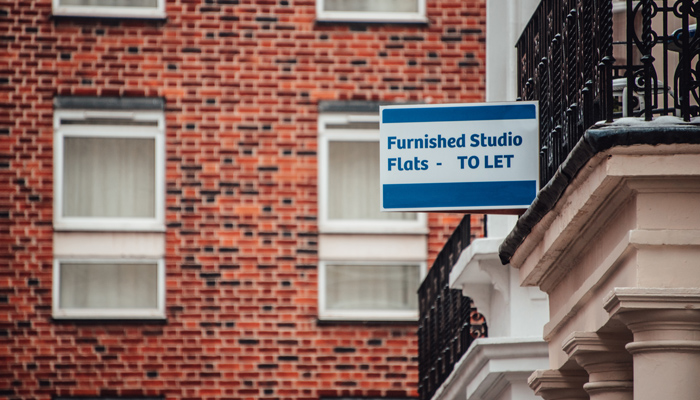Costs of Being a Landlord
Letting agent fees
Letting out a property is an increasingly popular way to earn a comfortable income. However, as a new landlord, you may be surprised by the expense involved. Luckily we've listed the top hidden costs you might experience in your quest to be a good landlord.
There are two levels of service with letting agents. The basic service is a tenant finder, which includes handling all the advertising, interviewing and credit checks. A full management service will find tenants, plus manage the property for you, collect monies, pay bills and handle the day-to-day relationship with the tenants. Letting fees will also vary depending on whether you choose a traditional high-street agent or an online service.
High-street letting agents
High street agents start at around 8% of the rental price for the more basic service. If you’re feeling cautious you can look for an agent that offers a 'No let, no fee' policy, to make sure you don't get charged should they fail to find someone. A full management service will cost on average 15% of the monthly rent - which is a big chunk of your profit. The pricing model of each letting agency can differ widely, so make sure you check exactly which costs are covered in the service and be aware of any additional costs.
Online letting agents
Usually you can pay a set fee of around £50 for an online letting agent to manage the initial let of your property. Again, there are usually various levels of service the letting agent will be able to provide for you from simply finding tenants, referencing and signing contracts, to fully managed service throughout the duration of the let.
No agents
Alternatively, you can go it alone. This will undoubtedly save you money, but in terms of time, you’ll be a busy bee. That said, it's likely most of the leg work is in sourcing and referencing the tenant, and if you and they are happy you can sit pretty thereafter. Remember, happy tenants mean less work in the long run, sourcing new people takes time and money.
The cost of finding tenants
Before you've even rented out your property – you need to find the tenants. If you have a letting agency appointed they may do this for you as part and parcel of your agreement with them. If you’ve decided to source them yourself, you could save money by placing an ad on free online services such as Gumtree or spareroom.co.uk. Social networks such as Facebook or Twitter to spread the word.
Once you've found your tenants, don't forget to get credit checks and references. Credit check services can cost as little as £10, and it's well worth the money for the peace of mind. In fact, having good tenants is one of the most important factors for a landlord and ensuring you’ve found the right tenants early on will save you money in the long run. Read our guide to attracting and finding good tenants here.
Why you need landlord insurance
A standard home insurance policy doesn't quite cover the same risks as a landlord insurance policy. When it comes to letting out your property you’ll need to get specialist cover in place. At the most basic, you will need to have buildings cover. But, there are many other options you may want to consider.
If you let your property out as furnished then you should look at getting the right level of contents insurance. It's also advisable to cover yourself for loss of rent and providing alternative accommodation should your property become inhabitable, plus cover for damage cause by tenants. And there are also legal fees to consider should a tenant need to be evicted or take you to court.
For an in-depth guide on getting the best out of your policy read our guide to landlord insurance here.
There are different levels, and therefore costs, of insurance depending on the type of tenant you have in your property. For example, if you let to students you may have higher charges than if renting to a single professional. It may be tempting to go for the cheapest option when insuring your property, but lower levels of cover could leave you open to risk. You are best going with a landlord insurance specialist, such as Towergate, who can tailor-make a policy to cover your precise needs. Not only will it give you peace of mind, it could save you a lot of money in the long term.
Landlord safety checks and maintenance
Cleaning costs
Once a tenant has vacated your property you will need to get it into the best possible state for your next tenant. If it has been left in a particularly poor state, you may be able to use your tenant's deposit to cover some of the costs. But more often than not you should expect to pay for the cleaning and redecoration for yourself.
Buy to let mortgages
Buy to let mortgages come with higher interest rates, higher fees and you'll often be expected to put down a larger deposit than compared with personal mortgages. Even if you decide to let out your own home, rather than buy a new property, you will need to inform your mortgage provider and may be moved to a higher interest rate. Make sure you work out the figures carefully and get financial advice. If you do decide to go ahead, shop around to find the best deal - your personal mortgage provider may not give you the best offer.
Legal fees and administrative charges
Renting out property comes with a host of small charges that may seem inconsequential on their own, but soon add up when put together. These include:
- Tenancy agreements
- Registering with a deposit protection scheme
- Obtaining an energy certificate
- Utilities, such as water and ground rent
- Security measures
- Setting up a limited company
Income tax for landlords
Whatever profit you make on renting out properties will of course be subject to taxes. You will only be taxed on your profits - as the costs of maintaining and managing your property will come under expenses. So make sure you keep all your receipts for any work done. You may even want to consider employing an accountant to help you manage the process. While this is yet another upfront cost, they could save you money in the long term.
The cost of your time as a landlord
Landlord insurance from Towergate
Being a landlord can be a costly venture, so it's best to make sure you minimise any expenditure - having the correct level of cover can save you a lot of money in the event that things go wrong.
For more information, visit our dedicated landlord insurance page or call us on 0344 892 1664 to speak to a specialist adviser.
About the author
 Alison Wild BCom (Hons), MAAT, ATT, Taxation Technician is a highly respected industry professional who has been working with and advising SMEs in areas including tax, pensions, insurance and marketing for over 25 years. She is a member of the Association of Accounting Technicians (AAT) and Association of Tax Technicians (AAT) and also has considerable experience as a residential landlord.
Alison Wild BCom (Hons), MAAT, ATT, Taxation Technician is a highly respected industry professional who has been working with and advising SMEs in areas including tax, pensions, insurance and marketing for over 25 years. She is a member of the Association of Accounting Technicians (AAT) and Association of Tax Technicians (AAT) and also has considerable experience as a residential landlord.
Date: October 04, 2016
Category: Landlords












